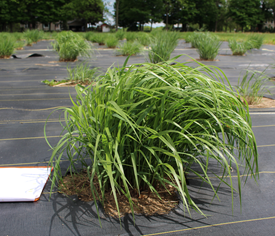The Malmstrom Lab studies plant, microbial, and landscape ecology. Our overarching focus is on the dynamics of ‘working’ landscapes that both support conservation and produce commodities for human consumption.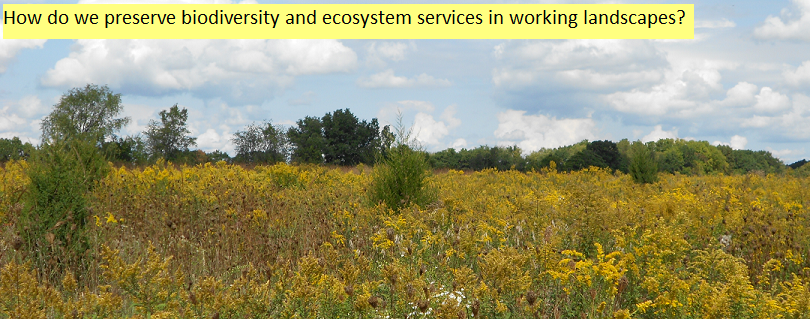
We are particularly interested in understanding how ecological communities respond to human-driven perturbations, such as the increasing ‘domestication’ of global landscapes. We use multi-disciplinary approaches to solve problems and often collaborate directly with stakeholders when designing projects. Current projects incorporate bioinformatics and molecular approaches with field work and geospatial analysis.
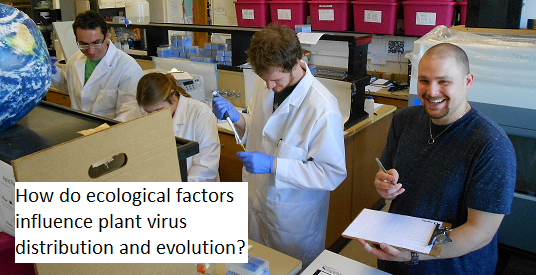 One research theme in the lab is understanding how the smallest plant-infecting microbes—viruses, viroids, and phytoplasmas—move
One research theme in the lab is understanding how the smallest plant-infecting microbes—viruses, viroids, and phytoplasmas—move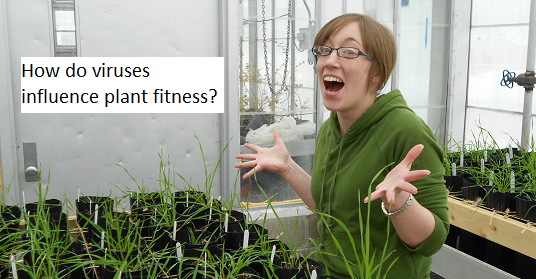 among agricultural and natural communities and influence ecological dynamics. In past work, we looked at the roles of viruses in influencing invasions in California grasslands, and examined the effects of crop viruses on native prairie grasses in the Midwest. At present, we are using deep-sequencing to explore the diversity of viruses, viroids, and phytoplasmas in plants and insects in several ecosystems, and evaluating the effects of these microbes on plant performance and fitness. A key question of interest is how microbial interplay with agricultural and wild plants feeds back to influence microbial traits.
among agricultural and natural communities and influence ecological dynamics. In past work, we looked at the roles of viruses in influencing invasions in California grasslands, and examined the effects of crop viruses on native prairie grasses in the Midwest. At present, we are using deep-sequencing to explore the diversity of viruses, viroids, and phytoplasmas in plants and insects in several ecosystems, and evaluating the effects of these microbes on plant performance and fitness. A key question of interest is how microbial interplay with agricultural and wild plants feeds back to influence microbial traits.

We also study how invasive species influence plant communities and how management strategies such as rotational grazing, prescribed fire, and native plant restoration can improve ecosystem quality. To investigate these questions, we have worked with ranchers to analyze biomass patterns and weed spread using remote sensing.
Current Projects
Testing predictions of plant–microbe–environment interactions to optimize climate adaptation and improve sustainability in switchgrass feedstocks
The Malmstrom Lab and Lowry Lab at MSU are working with colleagues from eight other universities and research facilities to maximize crop yield, stress tolerance and carbon sequestration in switchgrass, a bioenergy crop under development. This project–led by Tom Juenger at University of Texas, Austin–draws on previous ground-breaking work in identifying genes related to local adaptation. The new research leverages the established genetic resources of the Switchgrass Genetic & Environment Network Experiment, S-GENE, in which sequenced switchgrass accessions from diverse North American regions (circles in figure) are grown in common gardens across a latitudinal gradient (white triangles).
One key objective is to deepen understanding of local adaptation and to identify beneficial traits, genes, and microbial associates (bacteria, archaea, fungi, and viruses). The Malmstrom Lab leads work on the switchgrass virome. We are assessing the contributions of natural viral symbionts to switchgrass stress tolerance.
Hunting for a better biofuel is scope of new UT Austin-led research
Viruses and Host Genome photo gallery
Sticky Roots: Implications of altered rhizodeposition (driven by cryptic, viral infection of plants) for the fate of rhizosphere mineral organic matter associations in natural ecosystems
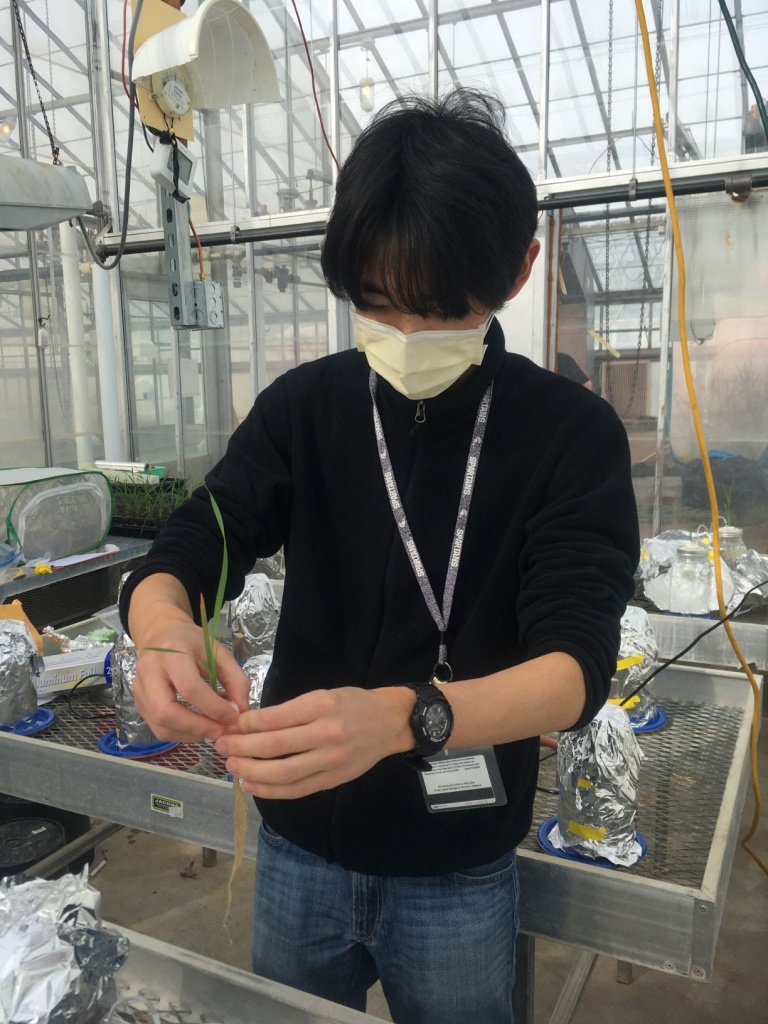
In a project funded by the Department of Energy, the Malmstrom Lab is working with colleagues at the Marine Biological Lab, the Berkeley Lab, and UMass Amherst to examine how exudates from plant roots influence mobilization of carbon bound to minerals in the soil. This mineral-associated organic matter (MAOM) represents a key long-term pool of soil carbon in diverse tropical and temperate ecosystems, and its release could increase carbon fluxes to the atmosphere. In this project, we are using plant viruses as tools to modulate the production of root exudates and examining the consequences for MAOM. The mechanistic understanding developed in this project will help refine the Land Model for the DOE Energy Exascale Earth System Model.
“Sticky roots” and the fate of soil carbon in natural ecosystems
Viruses and viroids in Michigan Hops
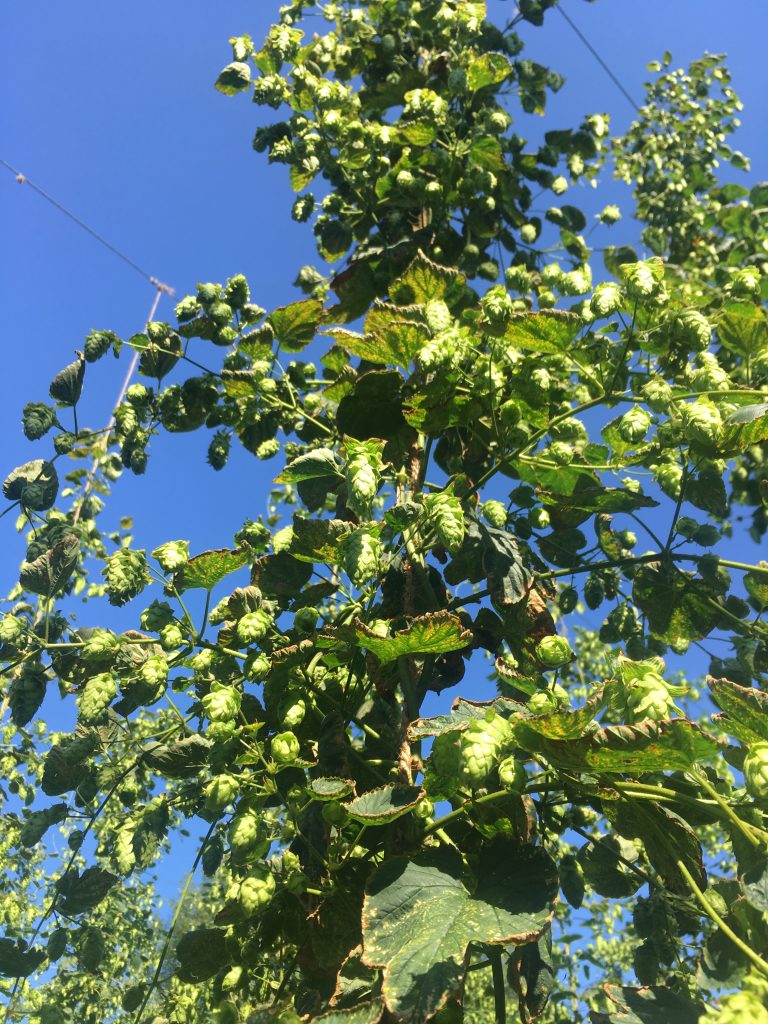
In a fun twist, our work with plant microbes has taken us to Michigan hopyards where we are developing better methods to detect viruses and viroids that can impact hop production. Through testing a variety of cultivars from farms across Michigan for different viruses, we can help farmers detect symptomatic and asymptomatic infections and prevent significant yield loss. We’re glad to have the opportunity to support the craft brewery industry.

